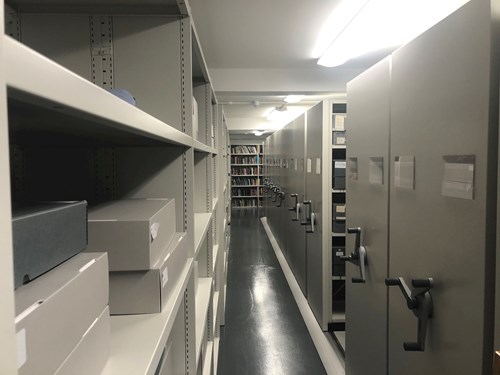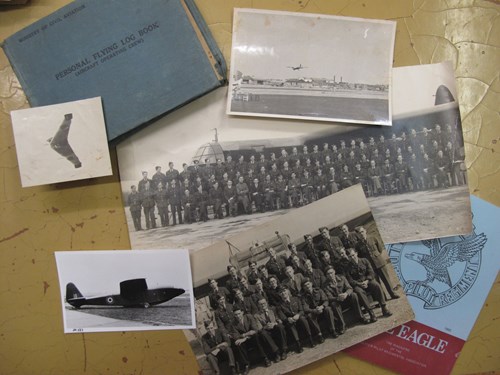The Archive
Archive Reading Room Rules
Introduction
The Army Flying Museum (AFM) encourages everyone to conduct research for themselves and welcomes researchers into the Reading Room.
Prior appointment is essential for consulting archive material within the Reading Room as restrictions exist on collections which require conservation, contain personal data, or are closed to external access for other reasons.
Reading Room
- The use of pens is not permitted in the Reading Room.
- No food or drink (including bottled water) is allowed in the Reading Room.
- Researchers must not bring in material considered historical militaria similar to that held in the AFM collection. Historical books may be brought in, but must be declared to staff upon arrival.
- Mobile phones are permitted, but please do not take phone calls inside the Reading Room. Headphones may be used, but at a volume inaudible to others.
- Researchers should treat the AFM Reading Room, staff and fellow researchers with respect at all times.
Collections Care
- While all efforts will be made to ensure access to the collection, the care and conservation of AFM collection items overrides the right to public access.
- All researchers are expected to handle objects with due care and diligence in line with the provided handling guidelines. Researchers must take every care to avoid removal, damage or marking of any collection items. Book supports and weights can be provided and are expected to be used. Archive material must be retained in the order in which it was received.
- Damage or theft of material is an offence and those responsible will be prosecuted.
Handling Guidelines
Please familiarise yourself with our handling dos and don'ts. Following these guidelines will help us preserve our unique collections for future use.
Please do not:
- bring any food or drink into the AFM Reading Room.
- lick your fingers when turning pages.
- use your finger to follow the text; acid-free paper is available to use as a guide.
- let materials hang over the edge of the desk or place them on the floor or chairs.
- remove material from transparent sleeves.
- make any annotations or alterations to the material.
- remove any bindings or fastenings from the material.
- lean on or trace over material.
- use flash photography.
Please do:
- ensure your hands are clean and dry before handling material.
- use pencils when making notes.
- ensure you have enough desk space.
- handle documents carefully and turn the pages from the edges.
- use the book cushions to support bound volumes and the snake weights to hold open pages.
- consult only one file at a time, keeping the file in original order, and never removing individual sheets from the file.
- use the weights available to hold down corners of large or curled material.
- let a member of staff know if any material is mislabelled, damaged or missing.
- ask a member of staff if you have any queries or require assistance; we are here to help.
Photography and IPR
- It is the responsibility of the researcher to comply with the relevant legislation on copyright and data protection.
- Photographs taken by the researcher's own device in the AFM Reading Room must not use flash.
- Photography with the researcher's own device is only permitted for personal study use. Any photography intended for commercial use must be discussed with the Archivist.
- The AFM will not photocopy any materials from its collections. Should you wish to obtain copies of AFM collection items not yet digitised, you may request AFM Archive staff to do so. This will likely incur an administrative fee, which will be advised on by staff at the time of request.



